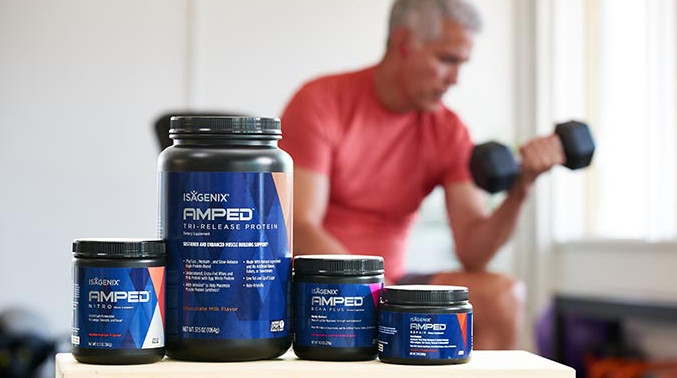Types, advantages, and disadvantages of sports supplements
Does the sports supplement really work as advertised? Do they have to be used for exercise? Are there any side effects associated with their consumption? In light of these few questions, it is better to research more about their ingredients and the effects of their use before taking sports supplements. The purpose of this article is to review the most common sports supplements based on scientific evidence.

How does a sports supplement work?
Usually taken before or after training, sports supplements fall under the family of food supplements. A variety of forms of this supplement are available, including tablets, powders, and drinks. The dietary supplement industry generated $122 billion in revenue in 2016 and is still growing.
In today’s world, trainers and suppliers of sports supplements are concerned with improving the performance of athletes, increasing fat burning, and explosive muscle growth through the consumption of these products, and they promote these products using complex scientific terms and names. Thus, you may develop the belief that you cannot exercise well without taking sports supplements.
Supplements before training
Energy and endurance are provided by pre-workout supplements. It is usually recommended that pre-workout supplements be taken 15 to 30 minutes before exercise, but they can also be taken during exercise.
Scientific evidence supports the effects of the following ingredients in pre-workout supplements. In the opinion of sports nutrition experts, these supplements are highly effective and have no side effects.
1. beta alanine
All types of red and white meat contain beta-alanine, an amino acid produced in the liver. Sports performance can be improved by taking this supplement for 2 to 4 weeks at a dose of 4 to 6 grams per day.
– The degree of effectiveness
High-intensity interval training and sprinting are better suited to taking this supplement. In addition, beta-alanine consumption has been shown to reduce neuromuscular fatigue, especially in older adults.
Beta-alanine increases muscle mass by enabling the athlete to perform more intense exercises for longer periods of time.
– Dosage
Healthy individuals can take this supplement in the recommended amount without experiencing any side effects. Taking beta-alanine supplements can cause numbness of the hands and feet or a tingling sensation in the skin, which can be reduced by taking a lower dose (1.6 grams per day) or using sustained-release supplements.
2. caffeine
Most pre-workout supplements contain caffeine as a stimulant to improve athletic performance during short, high-intensity and endurance workouts.
– Dosage
Athletes who perform intense training or participate in competitions should consume 3 to 6 mg of caffeine per kilogram of body weight one hour before exercising, according to the International Olympic Committee.
Caffeine consumption before and during exercises in the amount of 3 mg per kilogram of body weight (approximately 200 mg) has also been shown to improve long-term performance in athletes.
– Complications of use
The recommended amount of caffeine is beneficial, but higher intakes of caffeine (9 mg per kilogram of body weight and even more) do not seem to improve performance. Additionally, excessive caffeine consumption causes nausea, anxiety, and insomnia.
Caffeine consumption should not exceed 400 mg per day, according to experts. It is important to check the nutritional value table on the product package before using pre-workout supplements. Some contain more caffeine than is allowed.
Pre-workout supplements that contain pure caffeine powder are also available on the market. It is recommended that you avoid consuming pure caffeine powder, as even small amounts can cause unintentional overdoses. One tablespoon (10 mg) of pure caffeine powder is considered a lethal dose for adults, and it has been linked to several deaths.
3. Creatine
A lot of evidence supports the effectiveness of creatine, one of the most popular bodybuilding supplements. As the result of amino acid synthesis in the body, this substance is stored in muscle tissues and obtained from seafood and red meat. Muscles receive energy from creatine supplements.
In addition to building muscle and increasing strength, creatine consumption improves performance during strength training and high intensity interval training, according to scientific research.
– Dosage
Experts recommend consuming 5 grams of creatine daily according to their recommendations. The muscles’ creatine reserves can be increased by consuming this amount four times a day for 5 to 7 days, and when the muscles’ creatine reserves are fully saturated, you can maintain them by consuming 3 to 5 grams of creatine per day.
– Complications of use
According to scientific findings, creatine is a safe supplement. A doctor should be consulted before taking creatine if you have kidney disease.
4. L-arginine
For protein synthesis, the body needs branched-chain amino acids like L-arginine. Moreover, L-arginine plays an essential role in the production of nitric oxide, which relaxes the smooth muscles of vessels, improving blood flow and oxygenation.
There is not enough evidence to confirm the role of L-arginine in improving sports performance and its use as a pre-workout supplement.

After exercise, take the following sports supplement:
Muscle mass is increased with sports supplements after training. By promoting muscle repair and growth, these supplements increase muscle volume. We examine the most common compounds in post-workout supplements in the following section.
1. carbohydrate
For muscle repair, glycogen stores must be replenished with adequate carbohydrate intake after exercise. Furthermore, starting the next training session with sufficient glycogen stores improves sports performance.
– Dosage
After exercise, carbohydrates are required in amounts varying from 3 to 12 grams per kilogram of body weight depending on the duration and intensity of the exercise.
It is sufficient to consume 3 to 5 grams of carbohydrates per kilogram of body weight after a light walk.
Cycling at moderate intensity requires 5 to 7 grams of carbohydrates per kilogram of body weight.
In order to fully restore glycogen stores after an intense workout, the athlete needs 6 to 12 grams of carbohydrates per kilogram of body weight.
2. Protein
According to experts, athletes who do intense training to build muscle or maintain muscle mass should consume 1.4 to 2 grams of protein per kilogram of body weight daily. This amount of protein can be obtained in two ways:
Protein powder comes from a variety of sources, such as milk, eggs, and soy. In addition to whey and casein proteins found in milk, soy protein is found in soybeans, and egg white is usually used to prepare egg protein.
– Types of protein
Casein and whey proteins both contain all the essential amino acids, but their absorption in the body occurs at different speeds. Unlike whey protein, casein is not soluble in water and is digested later than whey protein.
If you are allergic to dairy products or have difficulty digesting them, you should avoid taking these 2 supplements to avoid side effects. Vegetarians and people with food allergies can benefit from soy protein. However, the amino acids in soy protein are sufficient, unlike many other plant proteins.
3. Branched chain amino acids (BCAAs)
In addition to the nine essential amino acids, 3 amino acids have a special chemical structure called branched chain amino acids: leucine, isoleucine, and valine.
Branched chain amino acids can be obtained in two ways. The first is to consume protein-rich foods, such as meat and eggs, and the second is to take supplements.
Studies have shown that branched-chain amino acids play a major role in muscle protein synthesis, especially leucine, which helps prevent protein breakdown.
Branched-chain amino acids contribute to muscle building, reduce muscle fatigue and soreness after exercise, and maintain muscle mass.
– Dosage
Based on your training level, you should consume branched chain amino acids on a daily basis. There is, of course, a difference between men and women in this amount. BCAs can be taken by women who do intense training up to 12 grams per day, and by men who do intense training up to 20 grams per day. In order to reach the permissible amount of branched-chain amino acids, it is best to consume them several times a day.
Athletes who train intensely and have specific goals should take sports supplements. There are some who want to improve their performance in competitions, and there are some who want to increase their muscle mass.


